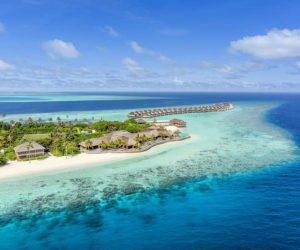In the annals of Maldivian history, one name stands as a colossal symbol of resistance, faith, and freedom: Sultan Muhammad Thakurufaanu Al Auzam, popularly known as Bodu Thakurufaanu (Bodu meaning “Big” or “Great” in Dhivehi). His story is not merely a historical account; it is the foundational epic of modern Maldives, a tale of a near-impossible victory that preserved the nation’s independence and religion.
The Backdrop: Portuguese Aggression and Occupation
By the mid-16th century, the Portuguese, with their powerful navy and colonial ambitions, had established a foothold in the Indian Ocean. Seeing the strategic importance of the Maldives as a stopover on the lucrative spice route, they sought to control the archipelago.
In 1558, a Portuguese fleet attacked Malé, the capital. The reigning Sultan, Ali VI, was killed in battle, and the Maldives fell under Portuguese occupation. The invaders established a garrison in Malé, led by a Captain-General, and began a fifteen-year period of oppressive rule. They forced Christianity upon the population, destroyed mosques, and levied heavy taxes, aiming to erase the Islamic identity that had defined the islands for centuries.
The Spark of Rebellion: Three Patriots from Utheemu
The heart of the resistance beat not in the capital, but in the northern atoll of Haa Alif, on the island of Utheemu. From here emerged three brothers from the Utheemu dynasty: Hassan Thakurufaanu, Ali Thakurufaanu, and the eldest and most famed, Muhammad Thakurufaanu.
Rejecting foreign subjugation, they began a guerrilla war from their small, swift vessel, the Kalhuohfummi, a craft designed for speed and maneuverability. For eight long years, from 1570 to 1573, they waged a naval guerrilla campaign, launching surprise attacks on Portuguese supply ships and outposts, disrupting their control, and rallying the support of the islanders across the atolls. Their intimate knowledge of the complex Maldivian atolls and channels gave them a critical advantage over the larger, slower Portuguese ships.
The Liberation of Malé (1573)
The rebellion culminated in a daring night raid on Malé. Under the cover of darkness, Muhammad Thakurufaanu and his small band of loyal fighters infiltrated the Portuguese fort. In a fierce hand-to-hand combat, they succeeded in killing the Portuguese Captain-General, Andiri Andirin, and overwhelming the garrison. The news of the liberation spread like wildfire, and the remaining Portuguese forces were swiftly driven from the islands.
Legacy: The Founding of a New Dynasty
Bodu Thakurufaanu’s victory was more than a military success; it was a national rebirth. He was crowned Sultan in 1573, founding the Utheemu Dynasty. His reign marked a period of profound reorganization and strengthening of the Maldivian state:
-
A Standing Army: He established the first formal, standing military force in the Maldives to prevent future foreign invasions.
-
A New Currency: He introduced a new coinage, the Larin, which strengthened the Maldives’ economic sovereignty.
-
Islamic Revival: He vigorously restored Islam, rebuilding mosques and reinforcing it as the core of Maldivian law and society.
-
Diplomatic Outreach: Understanding the need for allies, he formalized diplomatic relations with other regional powers.
The Enduring Symbol
Bodu Thakurufaanu passed away in 1585, but his legacy is immortal. He is revered as the ultimate national hero—a warrior-king who defied a global empire with unwavering courage and strategic brilliance. He represents the resilience of the Maldivian spirit and the defense of the nation’s Islamic faith.
Today, his memory is kept alive in countless ways:
-
National Youth Day: His victory day is celebrated as a national holiday.
-
The “Utheemu Ganduvaru”: His historic wooden palace on Utheemu island is a preserved national heritage site.
-
Cultural Icon: He is a central figure in Maldivian folklore, literature, and art.
Sultan Muhammad Thakurufaanu Al Auzam, Bodu Thakurufaanu, remains the “Giant” of Maldivian history, a figure whose story continues to define what it means to be Maldivian.



 advertisment
advertisment




 advertisment
advertisment





